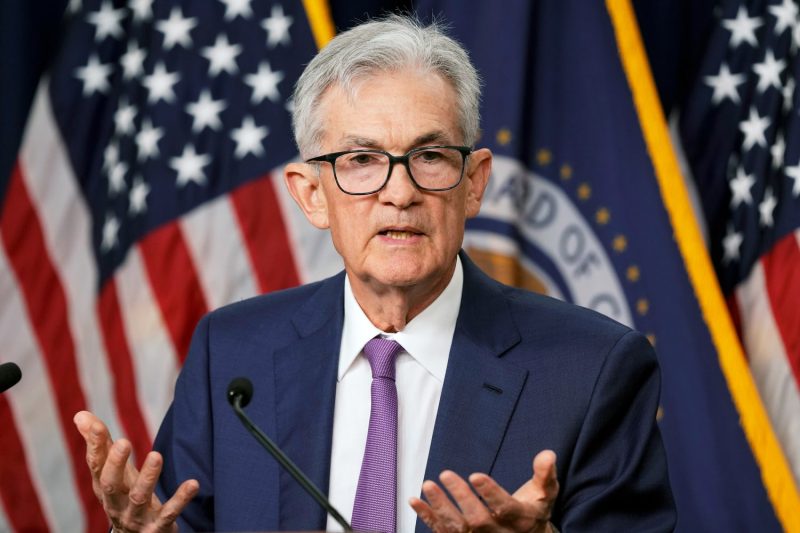Federal Reserve Chair Jerome Powell recently made a statement regarding the unexpected increase in inflation rates, expressing his view that inflation has been higher than previously estimated. Powell’s remarks come as the U.S. economy navigates through a period of uncertainty and rapid changes. The Federal Reserve plays a crucial role in maintaining economic stability by adjusting interest rates to regulate inflation and employment levels.
Inflation is a key economic indicator that measures the general rise in the prices of goods and services in an economy over a specific period. Higher inflation typically erodes the purchasing power of consumers and reduces the real value of money. The Federal Reserve closely monitors inflation trends and adjusts its monetary policy accordingly to ensure price stability and sustainable economic growth.
Powell’s acknowledgment of higher-than-expected inflation reflects the complex interplay of factors contributing to the current economic landscape. The COVID-19 pandemic has fundamentally transformed the global economy, leading to supply chain disruptions, labor shortages, and fluctuating consumer demand. These factors have created inflationary pressures that were not initially forecasted, challenging policymakers to respond effectively.
According to Powell, the Federal Reserve expects interest rates to remain steady in response to the heightened inflation levels. Interest rates influence borrowing costs for businesses and consumers, affecting spending patterns and investment decisions. By keeping rates unchanged, the Federal Reserve aims to support economic recovery while closely monitoring inflation dynamics to prevent overheating.
The Federal Reserve’s commitment to maintaining stable inflation is underscored by its dual mandate of promoting maximum employment and price stability. High inflation can undermine economic growth by reducing consumers’ purchasing power and creating uncertainty in financial markets. By adopting a data-driven approach to policy decisions, the Federal Reserve seeks to strike a balance between fostering economic recovery and controlling inflationary pressures.
Powell’s candid assessment of inflation trends highlights the Federal Reserve’s transparency and communication strategy. Clear and timely communication from central bank officials helps shape market expectations and guide economic actors in their decision-making processes. By openly discussing the challenges posed by higher inflation, Powell signals the Federal Reserve’s willingness to adapt its policies to evolving economic conditions.
In conclusion, Powell’s acknowledgment of higher inflation rates and the Federal Reserve’s decision to hold interest rates steady reflect the ongoing efforts to navigate a complex economic environment. As the U.S. economy continues to recover from the impact of the pandemic, policymakers must remain vigilant in addressing inflationary pressures while supporting sustainable growth. By maintaining a balanced approach to monetary policy, the Federal Reserve plays a pivotal role in shaping the trajectory of the economy and fostering long-term prosperity.
